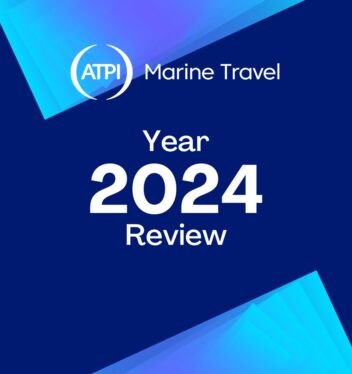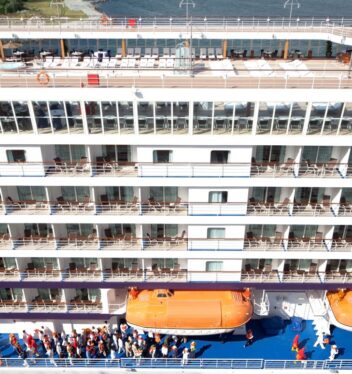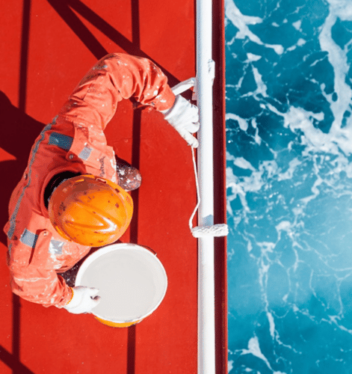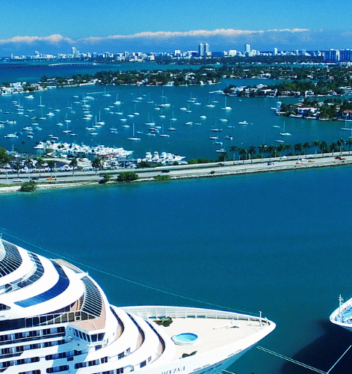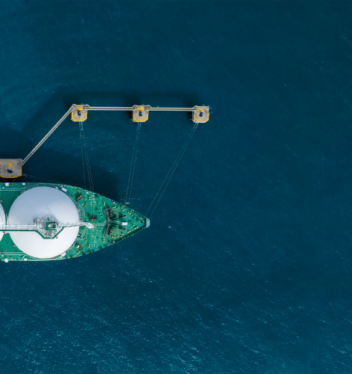Waves of change: An inspiring talk with Connie Roozen from WISTA International
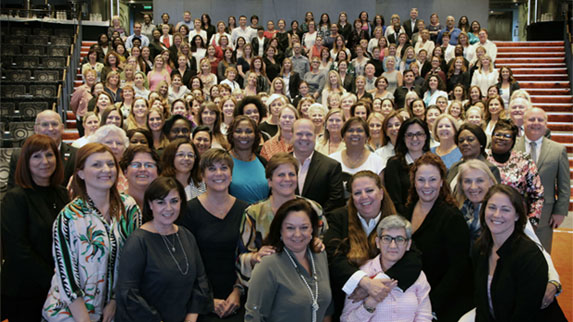
We had the pleasure of interviewing Connie Roozen, a former partner at Ernst & Young. She is now a tax partner of her own firm C&B More, a member of the Executive Committee of WISTA International, of the Rotterdam Maritime Board, a VP of the Committee Fiscal Affairs at the Dutch Royal Shipowners Association (KVNR) and serves on ISWAN’s board of trustees.
ATPI – WISTA has been at the forefront of promoting gender diversity in the maritime industry. What tangible changes in leadership representation have you observed since you joined, and where do you see the most room for improvement?
Connie Roozen – Well, as a global organization, we face different challenges depending on the region. For instance, right now the President of WISTA International is in Saudi Arabia, moderating a panel where she’s one of the few women in the room. So, the situation varies a lot by region.
However, what I have noticed is greater awareness and a willingness to improve the situation.
So, while we’re moving in the right direction, it’s happening very slowly. What’s encouraging is that gender diversity is no longer just seen as a “nice to have” or “window dressing”. There’s a growing understanding among leaders that change is necessary and beneficial for the industry. But, again, we’re not quite there yet.
One positive development is that we’ve conducted surveys on women working in the maritime industry. We did one around 2020, and we’re currently working on a new one to compare the results. We’re doing this in collaboration with the IMO (International Maritime Organization), with whom WISTA has consultative status. That’s a big shift for us.
So now it’s not just about raising awareness—we have the means and the platform to make meaningful changes. Having a seat at the table, especially with organizations like IMO, has been a huge step forward.
ATPI – That sounds like a significant milestone. When do you expect to have the results from the latest survey? Will the results be available to everyone, or is it just for WISTA members?
Connie Roozen – Yes, the results will be available to everyone. Here is the link.
The survey is being done together with IMO again, and I think the whole topic of gender diversity is becoming more prominent in boardrooms across the industry. There’s more awareness and a greater willingness to make changes, but it’s still a long journey.
ATPI – Yes, the key is to keep moving forward.
Connie Roozen – Exactly. I believe what has been most successful is including men in the conversation. Instead of just having women discuss gender diversity, we need men to be part of the dialogue too. This way, they become allies and are more open to driving change.
In the past, gender issues were often seen as something women needed to resolve themselves. But now, we see more men willing to get involved in WISTA.
ATPI – I didn’t realize WISTA included men as members.
Connie Roozen – Yes, in some countries. We’re seeing an increasing number of men getting involved, particularly in the U.S., Cyprus, Norway, and even in some African countries like Angola.
ATPI – That’s interesting. So, each country has different rules?
Connie Roozen – WISTA International oversees everything, but each country chapter sets its own rules. Some countries allow corporate members, some allow men, and the number and types of events vary. It really depends on the country.
ATPI – The maritime sector is traditionally male dominated, as we’ve discussed. What strategies or initiatives does WISTA prioritize to address the challenges women face—not just in recruitment but also in retention and career advancement?
Connie Roozen – We have several programs focused on that. WISTA International has various committees, including a Diversity Committee, which is dedicated to addressing the practical challenges women face in the workplace. For example, we run webinars and programs for our members on topics like maternity rights and leave policies. Unfortunately, one of the growing concerns we’ve had to address recently is harassment on board vessels and how women can deal with it.
ATPI – That’s an important issue, especially in such isolated environments.
Connie Roozen – Harassment in any workplace is terrible, but when it happens on a vessel, it’s even more stressful because there’s nowhere to go. So, we assist women by guiding them on where to turn for help. While WISTA doesn’t run its own specific programs for this, we collaborate with organizations like IMO and ISWAN (International Seafarers’ Welfare and Assistance Network), who specialize in seafarer welfare.
ATPI – Yes, I’m familiar with ISWAN—we’re members as well.
Connie Roozen – I’m on their board of trustees. They do great work. Our role is to guide women, whether they’re WISTA members or not, on where they can find help. We’re always looking to partner with experts and offer development opportunities like webinars. For example, ISWAN has a program focused on safety on board, and we’re working with them on that. Collaboration is key.
ATPI – That’s great. Now, I’m curious—do you also work on visibility for women in the maritime industry?
Connie Roozen – Yes, that’s something we’re really focusing on. Traditionally, maritime industry events have been dominated by all-male panels. So, we decided to address that with our Maritime Speakers Bureau, which is made up of all-female experts. Event organizers can search for speakers based on their areas of expertise. It’s important to not just have women talking about diversity, but also to highlight their expertise in technical subjects.
ATPI – That’s a brilliant initiative—making sure women are seen for their professional knowledge, not just for diversity representation.
We’re organizing a panel at CruiseConnect Global in Manila, and the women aren’t there just for diversity, but because they bring valuable insights.
Connie Roozen – That’s the right approach. The reason we launched the Maritime Speakers Bureau is that we noticed men tend to only recommend other men for speaking roles. There’s this unconscious bias where they don’t consider their female colleagues as potential speakers. The common reason we hear is, “We can’t find any female speakers on this subject.” With the MSB, we provide a list of qualified women speakers.
ATPI – This is so important, and it’s quite simple if you think about it, right?
Connie Roozen – Women need to realize they have valuable knowledge and experience to share, even if they don’t meet every single requirement.
ATPI – It’s about changing that mindset.
Connie Roozen – Yes, and WISTA is definitely helping with that, empowering women to use their voices.
ATPI – And men also need to be included in these conversations to understand the differences in how men and women approach these situations, don’t you think?
Connie Roozen – Yes, definitely. Employers, in particular, need to think about how they frame job descriptions if they want to attract more women. It’s not just about the job itself but how you present it.
ATPI – That’s a great point. Now, WISTA emphasizes global networking. How has this network impacted your career, and how can women in more remote or underrepresented regions take advantage of these opportunities?
Connie Roozen – WISTA’s global network has been incredibly valuable to me. Being on the executive board for six years has allowed me to learn so much, especially about communicating across different cultures. For example, in the Netherlands, we tend to be very direct, but I’ve had to adapt and learn different ways of approaching issues based on the culture of the people I’m working with.
Professionally, it’s also been beneficial. Many of my clients are WISTA members from around the world, and that connection builds a sense of trust. However, reaching women in more remote or less represented regions is still a challenge. It’s not just about equality; it’s also about equity. Some regions have different starting points or challenges, and we’re working hard to support those areas.
ATPI – That’s a great challenge.
Connie Roozen – Yes, and that’s why we give so much autonomy to each country. What works in one region might not work in another, so it’s essential to let them shape their own approach. But we’re making progress, and I’m glad to see the steps we’ve taken are paying off.
ATPI – It sounds like it’s a lot about finding balance between equality and equity, depending on the specific context of each region.
Connie Roozen – Exactly.
ATPI – It’s not just about offering opportunities but ensuring they align with the country’s culture, customs and accessibility.
Connie Roozen – We face challenges with our international conference and events like the WISTA International conference in Cyprus. Not everyone can attend due to costs or travel logistics. It’s crucial for us to balance in-person interactions with accessibility for those who can’t travel.
So, we now have a hybrid model for our Cyprus conference, which includes both in-person and online participation.
ATPI – That is great.
Sustainability is becoming increasingly crucial in the shipping industry. How does WISTA incorporate sustainability into its mission, and how do you see gender diversity contributing to a more sustainable maritime future?
Connie Roozen – Sustainability is a key component of our strategy, vital for both the maritime industry and our organization. We believe that gender diversity presents significant opportunities. For instance, digitalization and autonomous sailing are reshaping our industry, creating roles that might be more appealing to women, particularly in technical positions onshore.
ATPI – Can you share any specific programs or partnerships that have been successful in accelerating women’s leadership in the maritime sector? Are there any initiatives that organizations or individuals could learn from?
Connie Roozen – Certainly. We have collaborations with the IMO, including the Maritime Speakers Bureau and surveys that help position us as leaders in the maritime sector. Additionally, we have a MOU, Memorandum of Understanding with UNCTAD, a trading organization. Over the past five years, these partnerships have strengthened our leadership role. We also have programs addressing specific issues like menopause, maternity leave, and sexual harassment in collaboration with other organizations.
ATPI – Lastly, for young women considering a career in maritime, what skills or competencies do you think will be most critical given the rapid technological advancements?
Connie Roozen – In the future, individuals may need to manage multiple vessels simultaneously rather than focusing on just one. This will require strong organizational skills and multitasking abilities. Women are often adept at these skills, which could be advantageous. Additionally, there is a shift in leadership styles from traditional, authoritative approaches to more collaborative and inclusive methods, which aligns well with emerging female leadership trends.

